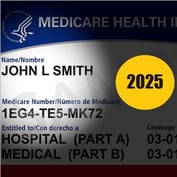The days of the 117th Congress are running out, and the 118th Congress is starting to come to life.
Republicans are on track to have control over the House, and Democrats are on track to keep control over the Senate.
Joe Biden, a Democrat, is still president.
Members of Congress may overcome partisan differences long enough to keep Medicare, Medicaid and other major federal government operations going.
What else can they possibly pass into law?
House Republicans will want to use their new House majority to introduce the kinds of proposals favored by organizations such as the Association of American Physicians and Surgeons, the CATO Institute, the Pacific Research Institute and the Paragon Health Institute.
The leader of the Paragon Health Institute, for example, is Brian Blase, who helped advise former President Donald Trump on health policy.
The measures that could actually become law, either as stand-alone bills or as amendments packaged into enormous “budget omnibus” bills, may be those that start out on the wish lists of groups like the CATO Institute or the Paragon Health Institute and can attract significant Democratic support.
The Affordable Care Act public health insurance exchange program, for example, stems from a proposal floated by conservative health policy analysts and supported by America’s Health Insurance Plans.
In the 118th Congress, the narrow Republican majority in the House and the narrow Democratic voting majority in the Senate mean that the Medicare bill gatekeepers will continue to be potential Democratic and Republican swing voters, such as Sen. Joe Manchin, D-W.Va.; Sen. Kyrsten Sinema, D-Ariz.; Sen. Susan Collins, R-Maine; and Sen. Lisa Murkowski, R-Alaska, in the Senate, and their equivalents in the House, along with some independent-minded lawmakers at the edges, who might sit votes out if, from their perspective, bills are too moderate, or objectionable for other reasons.
For ideas about five Medicare areas where Republicans and Democrats could find some common ground, aside from efforts to keep the current program funded and operating, see the gallery above.
(Image: Ormalternative/Shutterstock)







 December 01, 2022 at 10:50 AM
December 01, 2022 at 10:50 AM
















 Slideshow
Slideshow





